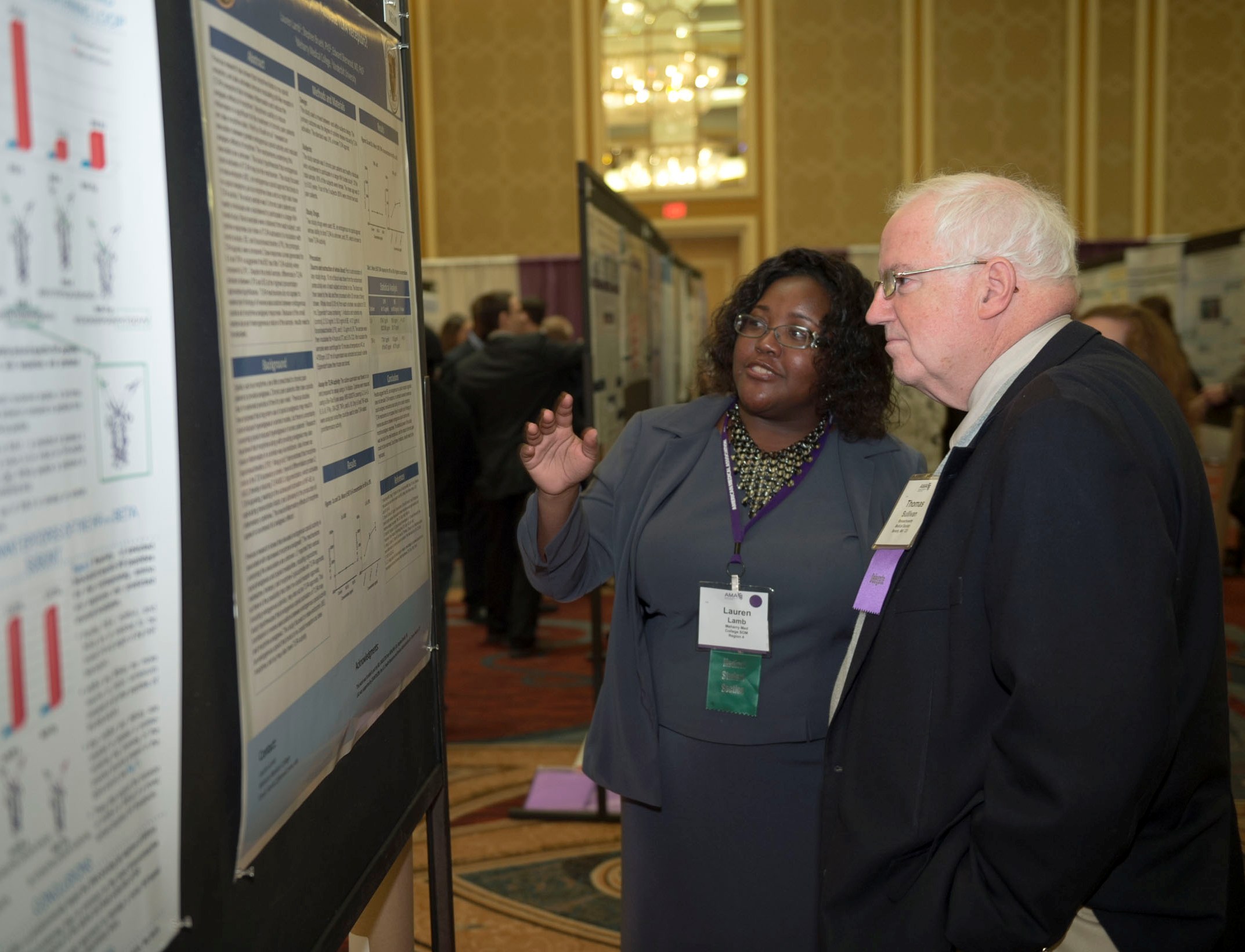Seven young medical researchers claim the distinction of being named Saturday as winners of the 2014 AMA Research Symposium, one of the most competitive and largest symposiums in the event’s 12-year history.
Competing among more than 400 of the country’s brightest medical students, residents, fellows and international medical graduates (IMG) awaiting residency, the seven overall winners were selected based on the outstanding quality of their work.
Overall winners for the AMA Medical Student Section are:
- Vlad Codrea, poster presentation
- Megan Beck, podium presentation
Overall winners for the AMA Resident and Fellow Section are:
- Oral Waldo, MD, poster presentation
- Justin Fiala, MD, Clinical vignette podium presentation
- Stephen Chun, MD, Clinical medicine podium presentation
Overall winners for the AMA IMG Section are:
- Osama Siddique, MD, podium presentation
- Vaibhav Goswami, MD, poster presentation
Correction, Dec. 1: An earlier version of this post incorrectly listed Dr. Siddique as the poster presentation winner and Dr. Goswami as the podium presentation winner for the AMA IMG Section. This error has been corrected above.
The symposium, which took place Friday night as part of the 2014 AMA Interim Meeting in Dallas, included hundreds of poster presentations and about 37 presentations as part of the oral competition.
This year also was the first time judges were able to contribute remotely.
Lauren Lamb (pictured above), a second-year medical student at Meharry Medical College, said she was participating in the symposium not only to present her own research but also learn from others—and later pass her experiences onto others as well.
“I want to do research as a clinician,” Lamb said. “This gives me experience. It helped me a lot to prepare, and I can help other students prepare, like my mentor did for me.”
Participants presented research spanning a broad range of topics, including the effects of music on anesthesia, explorations of diagnostic dilemmas, marijuana’s effect on pregnancy and more.
Sumit Dahal, MD, a first-year internal medicine resident at Interfaith Medical Center in Brooklyn, New York, presented his findings on how socioeconomic characteristics of nodal Hodgkin’s lymphoma patients may affect whether health care is managed in academic versus non-academic centers.
“The whole process [of research] is satisfying and fascinating,” Dr. Dahal said. “Life as a resident can be all about work—this gives a broader aspect that goes behind your everyday thing.”
The AMA Research Symposium is organized by the AMA Medical Student Section, the AMA Resident and Fellow Section and the AMA-IMG Section. This year’s event was the third time to include a category for IMGs who are certified by the Educational Commission for Foreign Medical Graduates and awaiting residency.
Darlyne Menscer, MD, clinical associate professor of family medicine at Carolinas Medical Center in Charlotte, North Carolina, has been a judge for the symposium for about five years.
“The quality [of projects] is amazing,” said Dr. Menscer, chair-elect to the AMA Council on Medical Education. “I like talking to the people who did the work. I think the thought behind these projects is really better than what you might estimate.”
In addition to the overall awards, winners were selected for each category in the medical student and resident and fellow competitions:
Resident and fellow winners:
- Ayesha Bibi, MD, clinical vignette
- Harmony Tyner, MD, clinical medicine
Medical student winners:
- Xiaowen Wang, biochemistry/cell biology
- Kevin Qin, cancer biology
- Jenny Wang, clinical outcomes and health care improvement
- Luis Diaz-Aguilar, immunology/infectious disease/inflammation
- Patrick Davis, neuroscience/neurobiology
- Johanna Kreafle, public health and epidemiology
- Jeffrey Fujimoto, radiology/imaging
- Nikita Consul, surgery/biomedical engineering




